Coaching training
Equipped for a world in transition
Our globally networked, digitized world confronts us with fundamental changes. We are challenged both personally and as a society to shape these upheavals: To explore new forms of living and working together, to endure contradictions and to learn how to deal with an overwhelming amount of information. The systemic approach - which focuses on interdependencies and sensitizes us to constructions of reality - gives us valuable impulses to better understand and shape this change.
What leads people into training
The personal motives for training to become a systemic business coach can be many and varied: We are approached by people who want to develop their leadership skills and their working style in a changed working world. Entrepreneurs who are looking for more certainty in the design of agile processes. HR professionals who are developing a new role identity - because they are now guiding others in building these new working worlds, leading agile teams and transforming entire companies. And we are a place for people who are preparing for their independence as coaches because they want to empower others for change.
In our training program, people from different professional fields and industries meet: Employees of large companies, managers from start-ups and the middle class, and the self-employed. The personal from the industrie, the freelance projectmanager, the FinTech founder, a pastor and a universityprofessor. Time and again, we hear from our participants how much they benefit from the diversity of experiences, the different life stories and the professional know-how. Because we also need this for a world full of opposites: an understanding of other perspectives and lifeworlds. With the hauserconsulting alumni network, we also promote this exchange beyond training.
What unites the people in our training groups is the high motivation to take their development into their own hands. And our participants have something else in common: by training to become a systemic coach, they not only want to grow themselves, but also support other people in their development.
Training from practice for practice
Our answer to this is a theoretically sound and at the same time practical training. Because hauserconsulting doesn't just provide training: as an experienced consultancy, all our trainers are out and about in the field every day. They shape change processes in organizations, support all management levels from team leaders to CEOs as coaches, and strengthen people in the development of their own leadership personality in training sessions. We incorporate all these experiences and our personal learning experiences into the training: this means that you are involved in real projects and coaching processes almost live.
Develop your own attitude
Coaching comes from an inner attitude. Of course, you will learn the practical tools of a coach: tools and methods that you can use in practice. Knowledge from the neurosciences and social sciences that will give you a lot of insight. But what is much more distructive: we will guide you to go through your own personal development process - at eyelevel and with personal responsibility. You will be invited to explore your human image and your thought systems and to discover new perspectives in contact with others. You will be given the space to try yourself out as a coach and to reflect on your first steps through attentive support and supervision. All this with the aim of developing your own systemic approach.
It is important to us that our work strengthens people in their personal development. Professionalization goes hand in hand with growth as a person, with shaping one's personal environment and also with contributing to social change.
As systemic consultants, we have all of this in mind and bring it to life in our training.

Supplementary offer
to our coaching training
Coaching Masterclass
Start fall 2024
- An advanced training for consultants and coaches who want to deepen their systemic attitude and align their own actions even more reliably with a theoretical frame of reference.
- You will meet a small group of experienced coaches and consultants who see themselves as an intensive research group.
- Scope and duration: 6 modules over a period of 18 months
In our coaching training, we are on a first-name basis - and take the liberty of addressing you as “you” here on our website too.
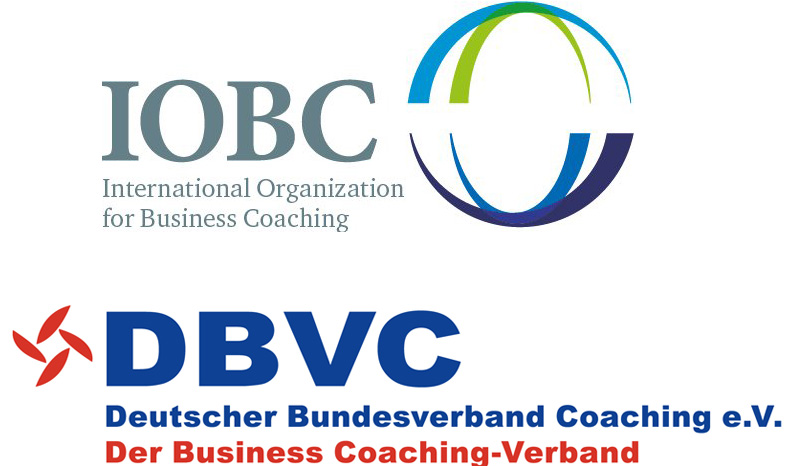
Our training is recognized by the German Federal Coaching Association (DBVC), the leading association for business coaching in Germany, and the International Organization for Business Coaching (IOBC).
hauserconsulting is well networked with DBVC and IOBC: many of our consultants are involved in association work. Eberhard Hauser, the founder and managing director of hauserconsulting, has been a member of the DBVC executive committee for many years, committed to professionalizing training and increasing quality standards in business coaching.
Our coaching training
The curriculum
We have been training people to become systemic business coaches since 1998. The architecture of our training has become more diverse in these years. The methodological approaches have become more refined over time. We have repeatedly taken up keytopics of the respective time and scientificfindingsand have integrated new models and tools. We have remained trueto our core: Coaching lives from the personalattitude - we teach it as a holistic, resourceoriented perspectiveon systems. During the training, we deal intensively with the participants' worldviews and personal strengths and needs. And we are passionately interested in ensuring that what you learn doesn't just remain theory, but is used in your own coaching and everyday work. Everyday life has become more digital – and so has our training.
In the following section you will find out how our curriculum is structured, what the curriculum contains and how we impart knowledge - because you can expect a variety of formats.
Structure of the training
Personal development takes time. The training to become a systemic business coach takes 18 months. In the year and a half, you will learn the basics of coaching and systemic consulting. You will reflect on what you have learned and try it out in your practice group. As a coachee, you will experience for yourself what it is like to be coached. And above all, you will gain your first experiences as a coach - because learning is best done through your own experience.
With our curriculum, we create a framework that you design independently - and that means using this time well for yourself and actively engaging with the learning content: Those who get involved and try out new things in the protected space of the training group advance their development. Those who coach a lot can handle their cases professionally in supervision and benefit to the maximum. Your own practice is deepened by dealing with the theory in two written papers.
The curriculum is divided into five modules with different content focuses. The modules each consist of a face-to-face seminar, an online day and a supervision.
















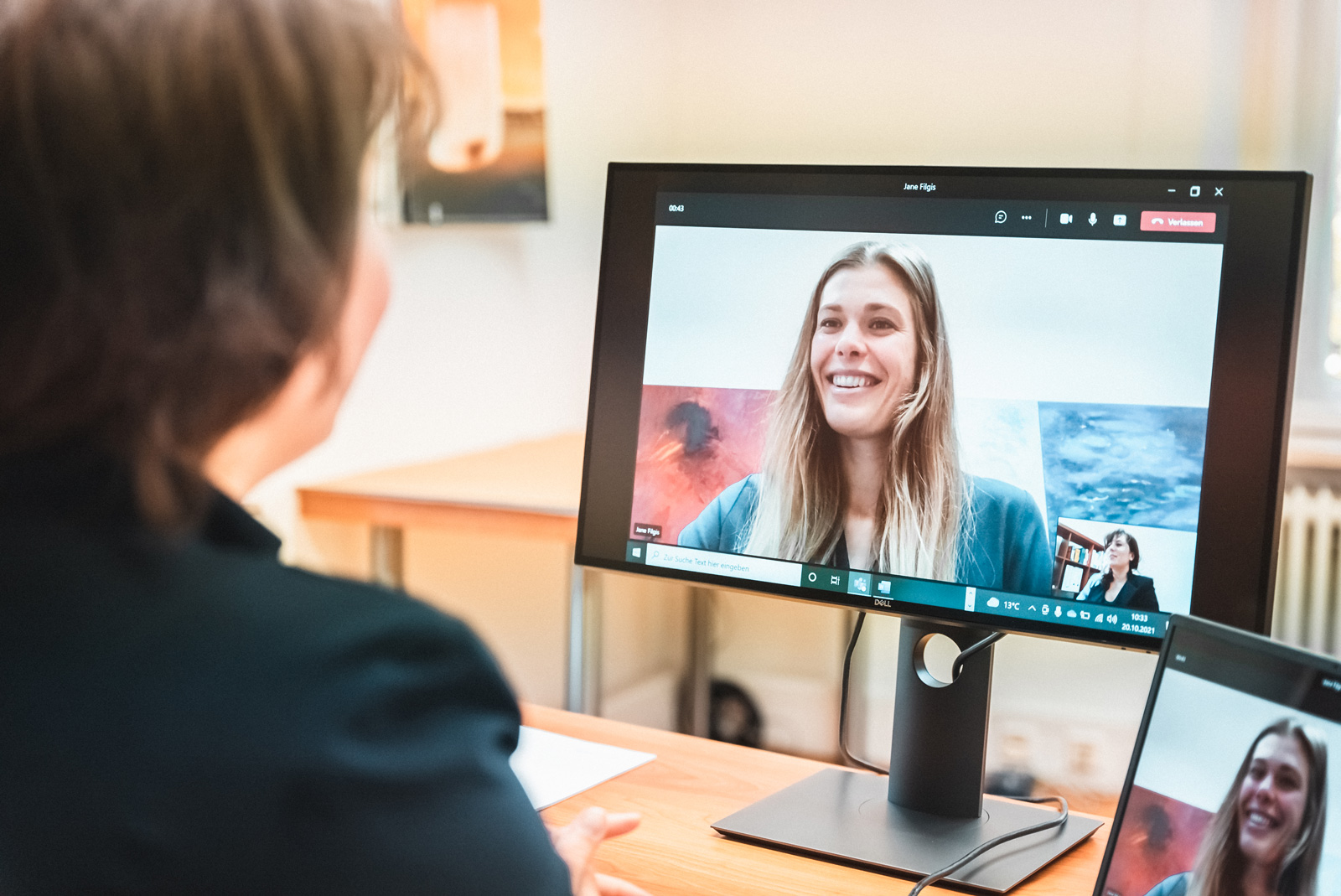










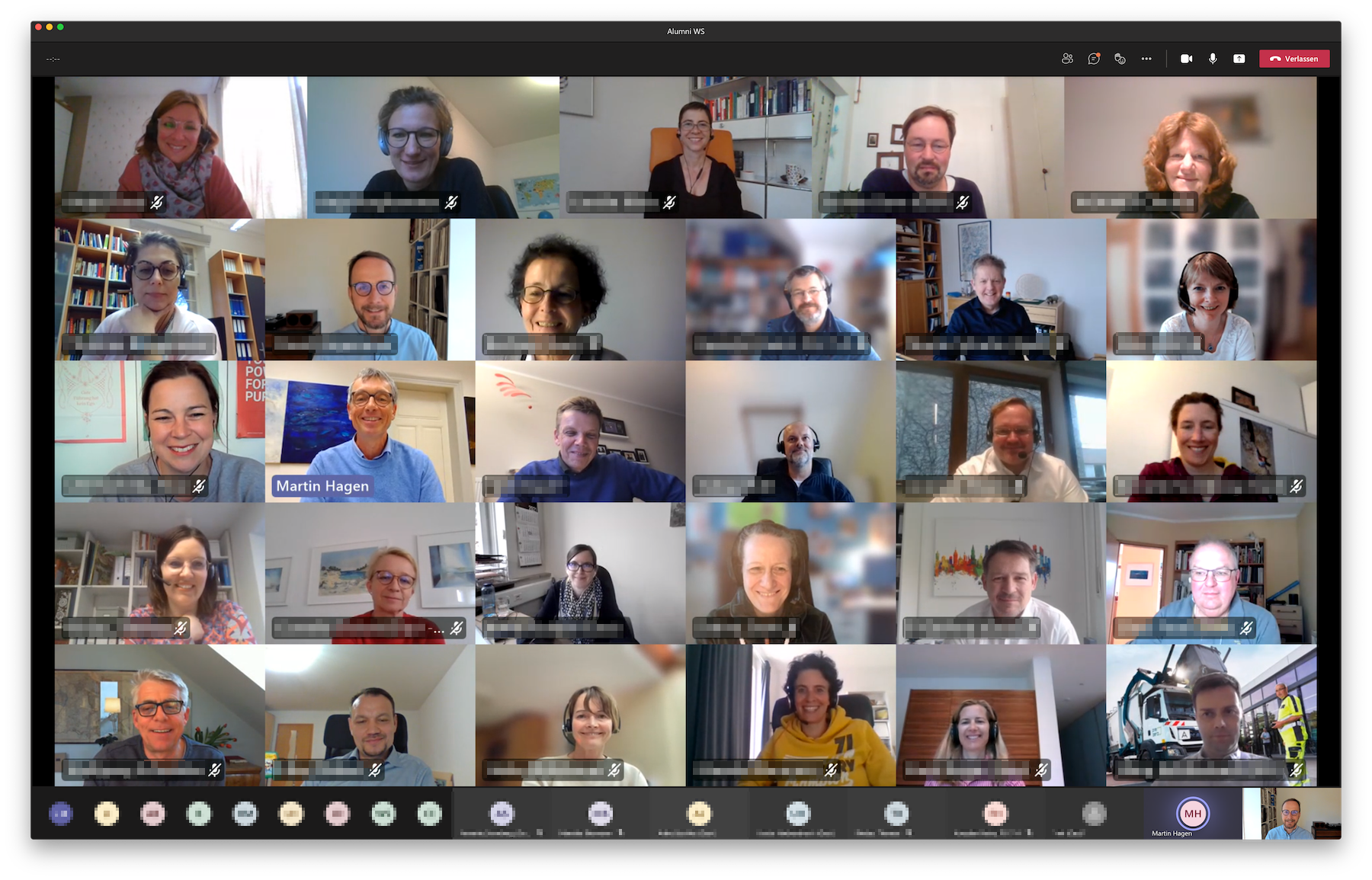














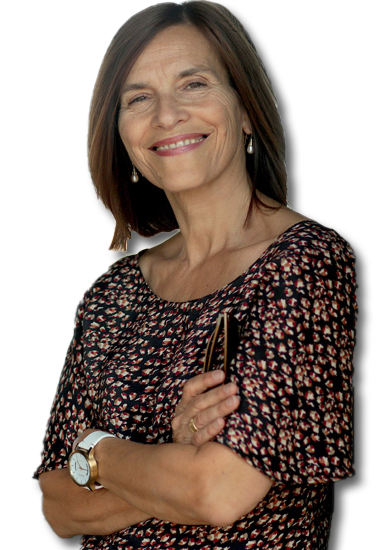
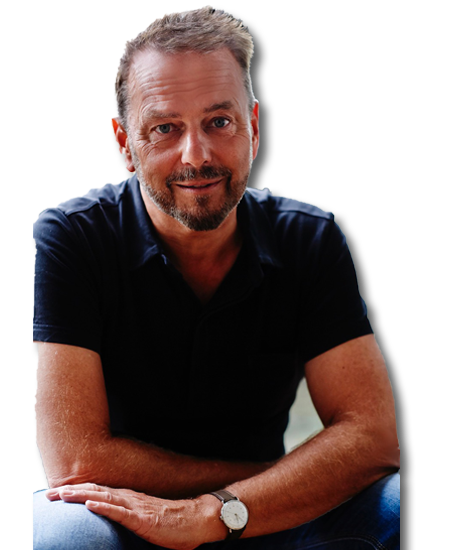

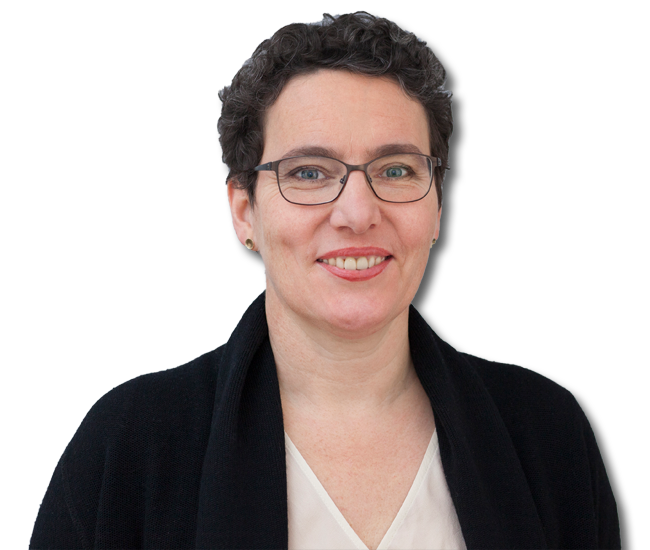
 Katharina Roßmann,
Head of Control and Special Sales at Versicherungskammer Bayern
Katharina Roßmann,
Head of Control and Special Sales at Versicherungskammer Bayern
 Wolfgang Schneider,
Snr. Change Management Consultant, Microsoft Deutschland GmbH
Wolfgang Schneider,
Snr. Change Management Consultant, Microsoft Deutschland GmbH

 Katharina Hust,
Head of People & Culture at Finanzchef24 GmbH
Katharina Hust,
Head of People & Culture at Finanzchef24 GmbH
